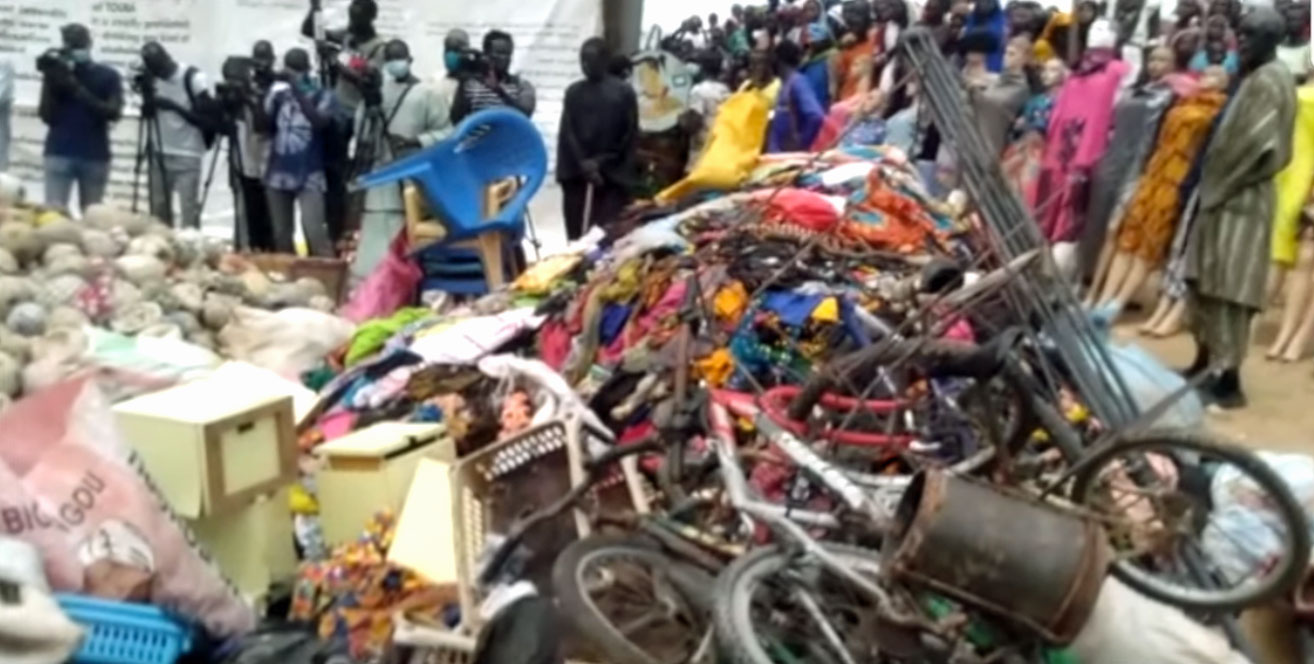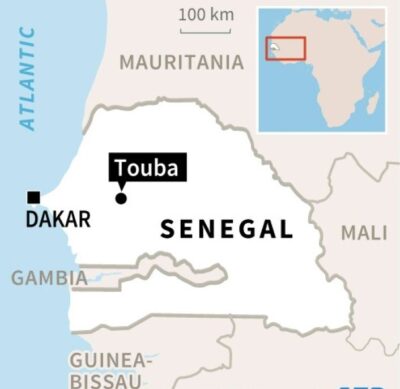This fall, Senegal learned that its human rights defenders lacked the courage to defend sexual minorities against human rights abuses.

In September 2020, religious police in Touba, Senegal, displayed illegal items they seized in a crackdown on objects and activities that are illegal in the holy city. Items on display include a pile of footballs (lower left) and an array of dresses on mannequins (upper left). They also arrested 10 alleged homosexuals. (Image from a video by Seneweb TV on YouTube)
That was even true for established community organizations that claim to advocate for LGBT+ rights, says Souleymane Diouf (pseudonym), a leader of the FREE Collective, which has worked to help LGBT+ detainees.
Their lack of will power first went on display on Sept. 20, when religious police arrested 10 alleged homosexuals in Touba.
Other than the FREE Collective, not a single LGBT+ community organization in Senegal nor any Senegalese civil society organization moved an inch, Diouf said.
He turned to a distant acquaintance, LGBT+ rights activist Moïse Manoel, who lives in French Guiana.
“With a foreigner, I would paradoxically be listened to and heard more than in my own country,” Diouf said.

Map of Senegal shows Touba and Dakar. (Map courtesy of AFP)
Manoel, who is a volunteer journalist for the Erasing 76 Crimes and 76 Crimes en français news sites, worked with Colin Stewart, the sites’ editor/publisher, to publish articles about what had happened. The articles led to international financial support for the FREE Collective that allowed the 10 gay men to leave the country.
The same problem occurred after police arrested 25 young presumed homosexuals in Keur Gorgui, Dakar, on Oct. 16. Once again, community organizations and civil society did not immediately respond, Diouf said.
“It is a painful truth to state, but it deserves to be said,” he said.
Local organizations began to react only because international institutions had started to look at human rights violations in Senegal, he said.
Often people complain about international interference or neo-colonialism, Diouf said. But without our friends at the international level, the LGBT+ community would remain under the thumb of Islamists, he said.
“We must be clear,” he said. “LGBT+ activists in Senegal have allowed Islamists to dominate the public debate on issues related to sexual minorities.” He points in particular to the Islamist advocacy organization JAMRA, led by Mame Matar Gueye, who has called for extermination of homosexuals.
“We have seen the situation deteriorate over the years,” Diouf said.
Supporters of human rights have been silent in the face of JAMRA’s deadly Islamist agenda, failing to articulate a vision of an inclusive society, he said.
Through that silence, LGBT rights advocates turned themselves into accomplices and allies of those who seek to suppress them, he said.
“Silence is a strategy that has never paid off in Senegal,” Diouf said, “while the violence against LGBT+ people has continued to intensify in recent months. We then come to the only conclusion that remains, namely that silence condemns us to failure.”
The FREE Collective intends to challenge Islamism in Senegal.
“We intend to become pioneers,” Diouf said.
COMMENTS